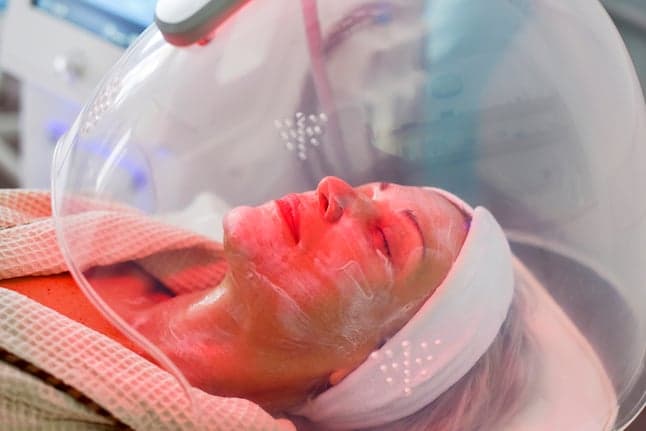Five unexpected things covered by private health insurance in Germany
All health insurances in Germany, both private and public, are required to provide a certain level of cover. This includes the things you’d expect like prescription drugs, hospital in-patient care and an employee sick note; however, plenty of additional treatments often require extra payment.

With ottonova private health insurance for expats earning €62,250+ a year coverage is much more comprehensive. It can be a real safety net while you’re living abroad - plus, you can claim certain things which may seem unusual to expats in Germany. Here’s a snapshot of what you can expect when you take out private health insurance with ottonova.
Natural healing methods
Conventional medicine isn’t always the answer; sometimes, alternative healing methods can be just what the doctor ordered. For instance, light therapy, which is among the natural healing methods covered by ottonova’s expat health insurance, has been found to be as effective as antidepressant medications for treating seasonal affective disorder. Other natural healing methods available for ottonova’s customers include heat treatments, speech therapy and massages (they really do have your back!).
Psychotherapy
 Photo: pressmaster / Depositphotos
Photo: pressmaster / DepositphotosTherapy can be pricey and, as a result, many people neglect their emotional wellbeing. When you’re covered by ottonova, you have no excuse to ignore your mental health. Depending on your tariff, you’ll be reimbursed up to 90 percent for each session of psychotherapy, a form of talk therapy which helps people to cope with emotional difficulties. There’s also no yearly session limit, in contrast to many other insurance providers.
Travel insurance
When you live overseas and are planning on taking a trip somewhere else, it’s important to check that you have the correct travel insurance. It’s reassuring to know that ottonova private health insurance covers you throughout Europe and for between 2-6 months outside of Europe, depending on your tariff. So all that’s left for you to worry about is what to pack in your suitcase.
Laser eye surgery
Vision correction surgery, also known as refractive and laser eye surgery, refers to any surgical procedure used to correct vision problems. Anyone who has struggled with their sight knows how life changing this surgery can be, but it’s also a big investment - unless it’s included in your private health insurance plan (which most often it isn’t). With ottonova, you can get between €250-€1,500 reimbursement per eye depending on your tariff and how long you’ve been insured.
 Photo: robertprzbysz / Depositphotos
Photo: robertprzbysz / DepositphotosFertility treatments
Struggling to conceive is stressful enough without worrying about how to pay for fertility treatments. Infertility care is often not considered an essential benefit under many health insurance plans but with ottonova’s First Class and Business Class tariffs you can claim up to €3000 during the first three months of treatment, after which you can undergo unlimited treatment.
As an added extra, all ottonova customers have access to the insurer's Concierge team. The English-speaking team can be reached via phone or the app to answer any health-related questions you have. They can even schedule doctor’s appointments for you, either in person or via video call which allows you to speak to a professional 365 days a year.
Click here to find out more about ottonova’s private health insurance for expats in Germany.
This article was produced by The Local Creative Studio and sponsored by ottonova.
This content was paid for by an advertiser and produced by The Local's Creative Studio.


Join the conversation in our comments section below. Share your own views and experience and if you have a question or suggestion for our journalists then email us at [email protected].
Please keep comments civil, constructive and on topic – and make sure to read our terms of use before getting involved.
Please log in here to leave a comment.